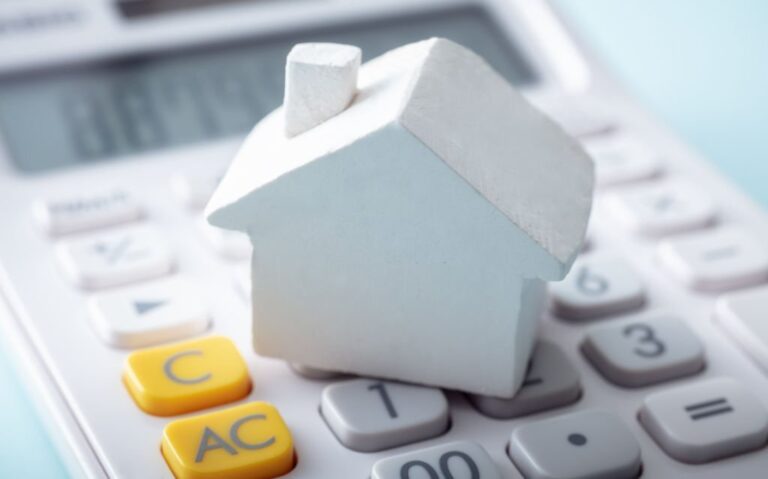Purchasing a house is a significant milestone that requires careful financial preparation. Before taking the plunge into homeownership, it is crucial to evaluate your financial readiness. This article will guide you through the key steps to get your finances in order before buying a house, including determining financial readiness, organizing your finances, saving for a down payment, understanding credit scores’ impact, and considering affordability factors.
Determining Financial Readiness
Assessing your financial readiness is essential before buying a house. Evaluate your overall financial stability, commitment to homeownership, goals, potential relocations, and family plans. Calculate your debt-to-income ratio and ensure you have a stable income source to cover mortgage payments.
Saving for a Down Payment
The down payment amount and available options depend on your preferences and the type of loan. While a 20% down payment used to be the norm, many homeowners now choose to put down less. However, a smaller down payment usually requires mortgage insurance and increases monthly payments. Research different loan types and consider state programs or gift money to boost your down payment.
Understanding Credit Scores’ Impact
Your credit score plays a significant role in the home-buying process. Lenders consider credit scores when assessing your eligibility for a mortgage and determining the interest rate you’ll receive. A higher credit score generally leads to more favorable mortgage terms. If your credit score needs improvement, it is advisable to work on it before pursuing homeownership.
Factors to Consider When Determining Affordability
When evaluating how much house you can afford, several factors should be considered. Start by assessing your income, debt-to-income ratio, and monthly expenses. It is crucial to budget for mortgage payments, property taxes, homeowner’s insurance, and potential maintenance costs. Additionally, consider plans, such as career growth and possible lifestyle changes.
By following these steps and ensuring your finances are in order, you will be well-prepared to embark on the journey of homeownership. Take the time to evaluate your financial readiness, get organized, and save for a down payment. Understanding credit scores’ impact and considering affordability factors will help you make informed decisions and
Importance of Assessing Financial Stability and Commitment
Buying a house is a significant financial commitment that requires careful consideration. Evaluating your financial stability and commitment to homeownership is crucial before diving into the housing market. Ask yourself if you are prepared to take on the responsibilities of owning a home and if you have a long-term plan in place. Consider your career stability, potential job relocations, and family plans. These considerations will help you determine if now is the right time to buy a house or if you should wait until you have a solid financial foundation.
Debt-to-Income Ratio and Stable Income Source
Calculating your debt-to-income ratio is crucial in determining your financial readiness for buying a house. This ratio compares your monthly debt payments to your gross monthly income. Lenders use this ratio to assess your ability to manage mortgage payments alongside other financial obligations.
A lower debt-to-income ratio demonstrates a more favorable financial position for homeownership. Ensure you have a stable income source that covers your mortgage payments and other housing-related expenses.
How to Get Your Finances in Order Before Buying a House:

Creating a Budget
The first step in getting your finances in order is to create a budget. A budget helps you manage your expenses effectively and allocate funds towards savings and debt repayment. Review your income and expenses, and identify areas where you can cut back to save more money. Allocate a portion of your budget towards paying off existing debts to improve your financial position.
Checking and Improving Credit Scores
Your credit score plays a significant role in the mortgage approval process. Check your credit score and review your credit reports for any errors or issues that must be addressed. If your credit score is lower than desired, take steps to improve it. Pay your bills on time, reduce your credit card balances, and avoid taking on new debt. A higher credit score can help you secure a better mortgage rate, saving you money in the long run.
Traditional 20% Down Payment vs. Alternatives
A traditional 20% down payment has long been the norm for homebuyers. However, alternatives exist depending on your financial situation and loan options. Some loan programs allow for lower down payments, such as FHA loans with a minimum of 3.5% down. While a smaller down payment may require mortgage insurance, it can make homeownership more accessible, especially for first-time buyers.
Mortgage Insurance Considerations
When making a smaller down payment, mortgage insurance may be required. This insurance protects the lender in case of default and is typically added to your monthly mortgage payment. Consider the impact of mortgage insurance on your monthly expenses and budget accordingly.
State Programs and Gift Money
Explore state programs that offer down payment assistance to eligible buyers. These programs vary by location and may provide financial support or favorable loan terms. Additionally, consider using gift money from family or friends to increase your down payment. Ensure you follow the guidelines and properly document the gift to satisfy lender requirements.
By following these steps to get your finances in order and determining the down payment that suits your situation, you can be well-prepared for the home-buying journey.
Credit Score’s Impact on Buying a House
When buying a house, your credit score significantly determines your mortgage eligibility and the terms you can secure. Lenders use credit scores as a key factor in assessing your creditworthiness and risk as a borrower. Understanding the impact of credit scores is crucial for those looking to purchase a home.
Role of Credit Scores
Credit scores are a numerical representation of your creditworthiness based on your credit history and financial behavior. Lenders use these scores to evaluate the likelihood of borrowers repaying their loans. A higher credit score indicates a lower risk, making you more attractive to lenders.
Importance of Higher Credit Scores
Having a higher credit score can significantly benefit you when buying a house. It increases your chances of getting approved for a mortgage and allows you to secure more favorable terms. With a higher credit score, you can qualify for lower interest rates, resulting in lower monthly mortgage payments and long-term savings.
Recommendations for Improving Credit Scores
Before pursuing homeownership, it’s essential to improve your credit score if it’s not already at an optimal level. Start by reviewing your credit reports for any errors and dispute inaccuracies. Pay your bills on time, reduce your credit card balances, and avoid taking on new debts. It’s also advisable to keep your credit utilization ratio low and maintain a diverse credit mix. By taking these steps, you can gradually enhance your credit score and increase your chances of securing favorable mortgage terms.
FAQ:
How can I determine if I'm financially ready to buy a house?
Determine readiness by considering financial and emotional factors, aligning goals, and assessing stability and commitment.
What steps can I take to get my finances in order before buying a house?
Get finances in order by creating a budget, paying off debts, saving for a down payment, and checking your credit score.
How much should I save for a down payment, and what are my options?
The down payment amount depends on personal preference and loan type. Options include state programs and gift money.
Does my credit score impact my ability to buy a house?
Yes, credit score affects the ability to secure a mortgage and influences interest rates. A higher score leads to better terms.
What factors should I consider when determining how much house I can afford?
Consider income, debt-to-income ratio, mortgage rates, down payment, local market, and plans.




